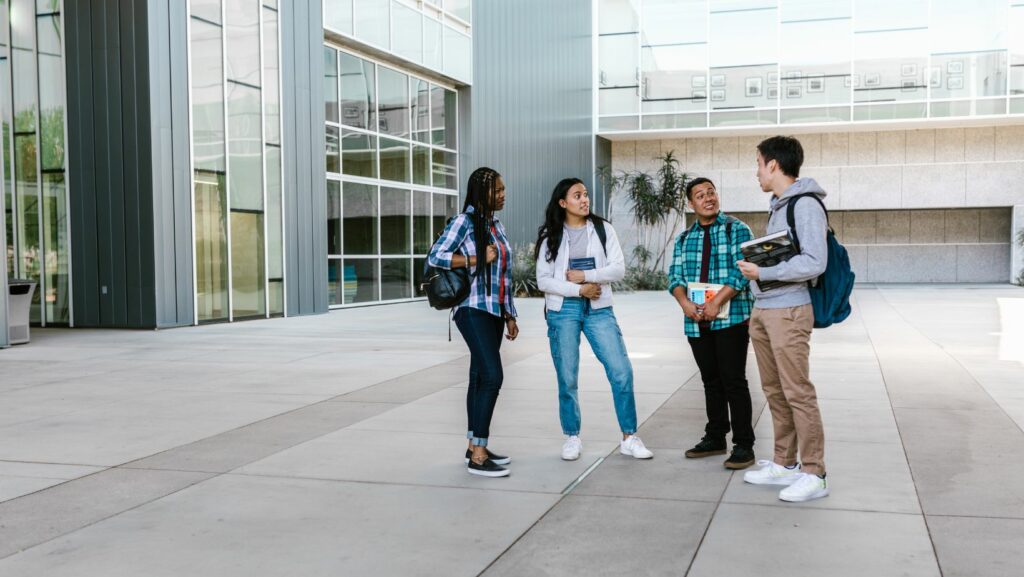College Safety Tips
Heading off to college is an exciting time filled with new experiences and opportunities. However, ensuring personal safety on campus is paramount for every student. In this article, readers will discover essential college safety tips to navigate campus life confidently.

From staying aware of their surroundings to utilizing safety resources provided by the university, students can take proactive steps to protect themselves. By incorporating simple yet effective safety practices into their daily routine, students can focus on their studies and social life without compromising their well-being.
Whether it’s walking with a friend at night, securing personal belongings, or familiarizing oneself with emergency procedures, these practical tips will empower students to prioritize their safety while embracing the college experience. Stay tuned to learn how to stay safe and secure while making the most of your college years.
Importance of College Safety
Understanding the importance of college safety is crucial for students transitioning to campus life. By prioritizing safety, students can focus on their academic and social pursuits without unnecessary worry or risk. Here are key reasons why college safety is of utmost importance:

- Enhances Well-Being: College safety measures promote a secure environment for students to thrive academically and socially.
- Ensures Peace of Mind: By following safety guidelines, students can feel more secure and at ease while on campus.
- Supports Academic Success: A safe campus environment enables students to concentrate better on their studies and achieve their academic goals.
- Fosters a Positive Experience: Feeling safe fosters a positive college experience, allowing students to engage fully in campus activities and form meaningful connections.
Prioritizing college safety is foundational for students to make the most of their time in higher education and set the stage for a fulfilling academic journey.
Safety Tips for Students
Personal Safety Measures
Staying safe on campus is a top priority for all students. Walking with a trusted group of friends, especially at night, can significantly reduce the risk of encountering potentially unsafe situations. By being cautious and aware of their surroundings, students can enhance their personal safety and well-being.
Keeping personal belongings secure is essential to avoid theft or loss. Utilizing lockers, lockable backpacks, or secure storage options can prevent valuable items from being stolen. It’s crucial for students to remain vigilant and protect their possessions at all times.
Campus Safety Resources
Universities offer various safety resources to support students in maintaining a secure environment. These resources may include campus security services, emergency call boxes located throughout the campus, and safety escort services for students walking alone at night. By familiarizing themselves with these resources and how to access them, students can feel more confident and prepared to handle any safety concerns on campus.
Building a Safe Community
Creating a safe community is a collective responsibility that involves every member playing their part to ensure a secure environment for all. By fostering a culture of safety and vigilance, college campuses can become nurturing spaces for students to grow and thrive.

- Promoting Awareness: Encouraging open communication about safety issues can raise awareness among students, faculty, and staff. By educating the campus community on potential risks and the importance of reporting suspicious activities, everyone can contribute to a safer environment.
- Building Relationships: Establishing strong relationships within the college community can enhance safety. Connecting with peers, professors, and campus security personnel fosters a sense of belonging and encourages individuals to look out for one another.
- Utilizing Technology: Leveraging technology can boost safety efforts on campus. The use of safety apps, emergency notification systems, and surveillance cameras can aid in swift responses to emergencies and deter potential threats.
- Implementing Safety Policies: Enforcing clear safety policies and protocols helps set expectations for behavior on campus. Establishing guidelines for emergency procedures, building access, and visitor management can mitigate risks and promote a safer environment for all.
- Engaging in Training: Providing safety training sessions for students, faculty, and staff equips individuals with the knowledge and skills to respond effectively to emergencies. Training on topics such as active shooter situations, first aid, and campus evacuation procedures can empower the community to act decisively in crisis situations.

